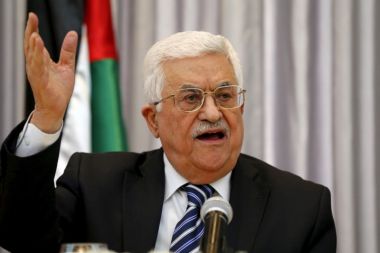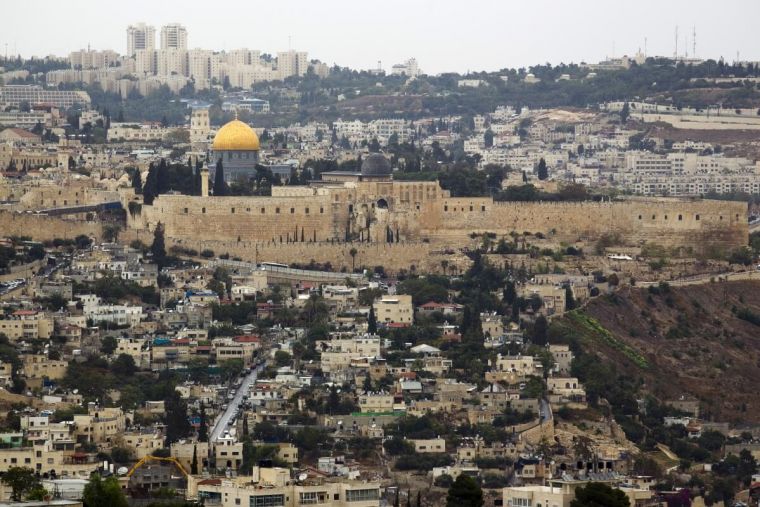As Palestinian leader says Trump's Jerusalem move is 'slap of the century', could Jerusalem still be a shared capital?
The Palestinian president, Mahmoud Abbas, has said that Donald Trump's announcement in December that the US was unilaterally recognising Jerusalem as the capital of Israel is the 'slap of the century' at Palestinians.

In a speech in the West Bank city of Ramallah, Abbas implied that it was also a major threat to the concept of the two-state solution. 'I am saying that Oslo, there is no Oslo. Israel ended Oslo,' he said, referring to the accords, signed in the 1990s, that set the terms for the dormant 'peace process' negotiations between Israel and the Palestinians.
While Israel – and seemingly now Trump, backed by US evangelicals – considers Jerusalem its 'eternal, undivided capital', the Palestinians regard the east of the city – occupied by Israel in the 1967 Six Day War – to be the capital of any future Palestinian state. Critics argue that Trump's plan effectively rules out a two-state solution to which the agreed division of Jerusalem would be key.
However, the prominent evangelical spokseman Johnnie Moore, who is credited with coordinating between evangelicals and the White House on the issue, has begged to differ.
Moore told the BBC: 'The Palestinians have referred to East Jerusalem to be the capital of a Palestinian state. Which implies that at least West Jerusalem is going to be the capital of the Israeli state.'
This, in turn, implies that Jerusalem can, ideally, one day be the shared capital of both Israel and a future Palestinian state (as the UK Foreign Secretary Boris Johnson said last week).
And this is of course in theory true.
But if Trump had actually said that in his speech at the White House last month – which he (presumably deliberately) didn't, it would have caused much less adverse reaction, one that has already resulted in tens of Palestinian deaths in demonstrations and a deterioration in the security situation in the region.

It would not have been so bad if Trump stressed he was specifying West Jerusalem as Israel's capital, which would have left open the possibility that East Jerusalem might still in future be that of the Palestinians.
But nor did he specify, as all governments in the past including his own have assumed, that West Jerusalem would be the site of a future of an Israel capital.
In other words, it is hard to escape the conclusion that Trump's administration is indeed open to Jerusalem as an 'undivided' capital. And Moore, while laughing off the idea that evangelicals back the move for theological reasons, has repeatedly said that this was a 'strategic' and 'geo-political' decision.
Trump's logic appears to have been that because not recognising Jerusalem as the capital or moving the US embassy there had not produced peace so far, doing both things might.
Yet he put the Palestinians in a seemingly impossible position, demanding that they re-engage with the peace process under the new humiliating terms or face consequences, including the possible funding cuts he announced on Twitter over Christmas.
Nonetheless, Moore has a point, on paper at least. The unspecific terms in which Trump made his announcement does not rule out East Jerusalem as a Palestinian capital.
It's just that Trump dangerously failed to rule in such a scenario.











